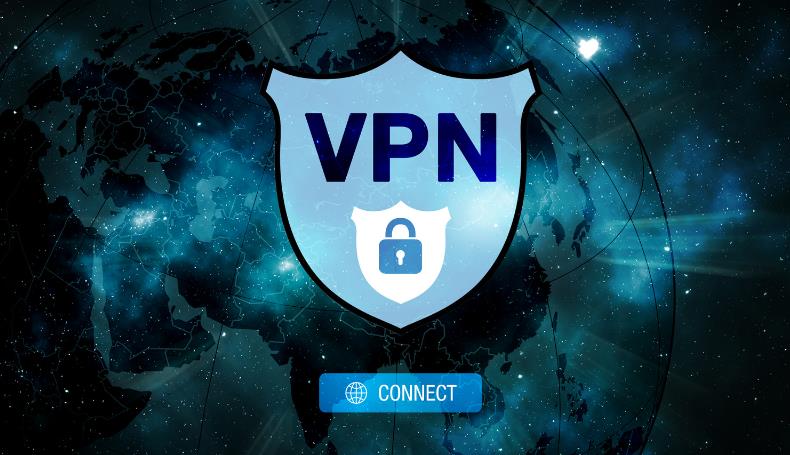
VPN App or Browser Extension – Which is Right for You?
A privacy tool known as a virtual private network (VPN) can safeguard your online information by encrypting data and concealing your IP address from others. After choosing the most suitable VPN for your needs, you can either download a VPN app or opt for a VPN browser extension. Both options provide VPN protection, but each offers a distinct level of security.
We will explore the disparities between VPN apps and VPN browser extensions. This way, you can better understand the features of each type of software and be able to make an informed decision.
What You Need to Know About VPN Apps?
A VPN client app is an indpendent application for VPN that establishes an encrypted tunnel between your device and a dedicated server. When connected to the VPN, all your internet activity goes through this encrypted connection, safeguarding your data from prying eyes. Unlike a browser extension, a VPN client app secures your entire internet traffic, regardless of the browser you utilize.

Most VPN apps utilize robust encryption protocols, some offering encryption that is virtually impossible to crack. If you consider the VeePN download, you will get AES-256, which is used by the military and banks to protect their data. VeePN also supports all popular platforms. You can install VPN for Apple TV, Windows, routers, etc.
VPN app benefits:
- VPN apps secure your entire internet traffic using strong encryption protocols.
- They regularly maintain multiple server locations to ensure quality.
- VPN apps provide secure and reliable connections with minimal speed reduction.
- Unlike VPN browser extensions, VPN apps support multiple simultaneous device connections, allowing you to protect multiple devices with a single account.
Cons:
- VPN services typically impose a fee, which can be a one-time payment or a subscription, due to the maintenance cost of running an expensive network of servers.
- Installing VPN apps on certain devices may demand time and expertise.
What You Need to Know About VPN Extension?
A VPN extension is a simple plugin or add-on that enables users to establish a quick VPN connection. It is user-friendly and operates solely within the browser, without interfering with other device traffic. Functioning as a lightweight version of a VPN app, the extension operates at the browser level.

A VPN extension conceals the user’s actual IP address and maintains anonymity for browser activity. Once installed on a browser like Chrome or Firefox, a VPN extension exclusively affects internet traffic within that browser. It does not impact other activities like gaming, torrenting, or using other applications on the device.
Everything outside the browser connects directly to the servers. For instance, when a VPN Chrome extension is added to Chrome, it secures all internet activity within the Chrome browser. Upon exiting Chrome and launching an application such as Skype, the private connection ends. It’s important to note that the VPN Chrome extension does not protect communication on Skype.
Pros:
- VPN extensions have a user-friendly interface and provide a lightweight solution.
- Often free distribution gives them an advantage over client apps.
Cons:
- VPN desktop apps are generally faster than VPN extensions.
- Cybercriminals may exploit the vulnerability of personal information on your device when protected solely by browser traffic.
- VPN extensions offer less security and often fail to encrypt your connection.
- Numerous free VPN browser extensions intentionally track user browsing habits and sell personal information to third-party advertisers to remain operational.
The Main Differences Between VPN VPN App vs Browser Extension

We invite you to go through the main differences between these forms of VPN distribution.
- VPN browser extensions provide basic protection for security and privacy, but dedicated VPN apps offer comprehensive encryption and advanced security features. This makes them more suitable for safeguarding sensitive data and privacy.
- Dedicated VPN apps offer a wider range of server options, advanced features such as Kill Switch and Split Tunneling, and system-wide protection, which browser extensions lack in terms of functionality and features.
- Browser extensions integrate seamlessly with web browsers and consume fewer system resources. They provide a convenient and streamlined user experience with easy navigation and one-click activation. On the other hand, dedicated apps may require more setup and customization, resulting in a steeper learning curve and potentially impacting device performance; however, they offer more stable and consistent connections in terms of compatibility and performance.
- While VPN browser extensions are often included for free with VPN subscription plans, dedicated VPN apps may be sold separately or at a higher price. It’s important to note that not all VPN services offer browser extensions, but most have dedicated apps available for different operating systems regarding pricing and availability.
Conclusion
Both VPN extensions and client apps offer their own sets of advantages and disadvantages. If you want a tool to encrypt all your internet traffic, you should utilize a VPN client app. However, if you prefer to simply mask your IP for casual browsing without the hassle of installing an app on your device, then a VPN extension is a more suitable choice.
Author Profile

- Blogger by Passion | Contributor to many Business and Marketing Blogs in the United Kingdom | Fascinated with SEO and digital marketing and latest tech innovations |
Latest entries
 Online BusinessNovember 19, 2025Does Automated Data Drive Growth?
Online BusinessNovember 19, 2025Does Automated Data Drive Growth? TechnologyNovember 18, 2025How AI Social Media Tools Use Mobile Proxies to Avoid Detection?
TechnologyNovember 18, 2025How AI Social Media Tools Use Mobile Proxies to Avoid Detection? TechnologySeptember 26, 2025Make Review Videos Pop with Interactive AI Avatar Additions
TechnologySeptember 26, 2025Make Review Videos Pop with Interactive AI Avatar Additions TechnologySeptember 5, 2025How Beginners Can Choose a Safe and Trusted Platform for Playing Online Games?
TechnologySeptember 5, 2025How Beginners Can Choose a Safe and Trusted Platform for Playing Online Games?

